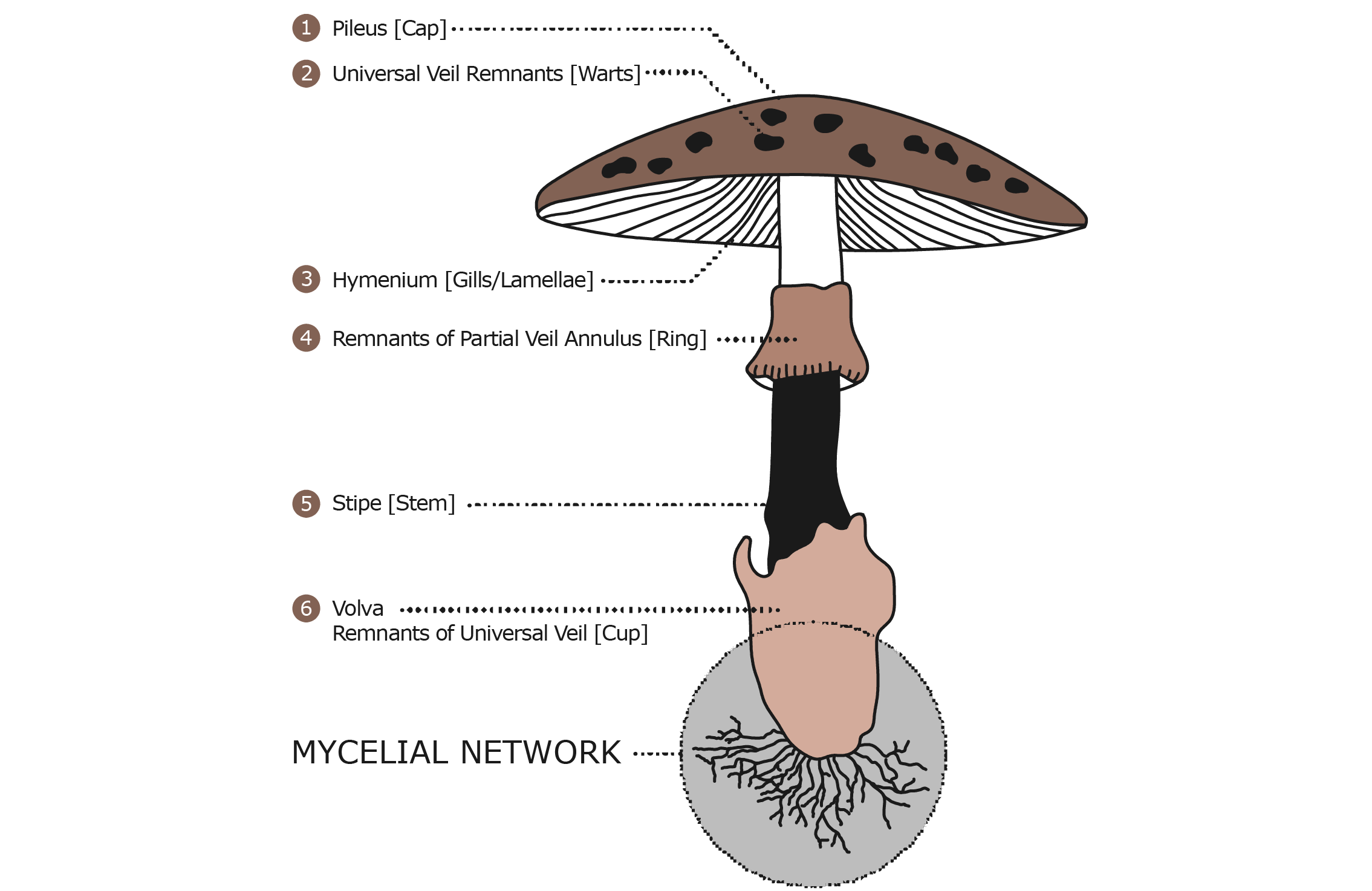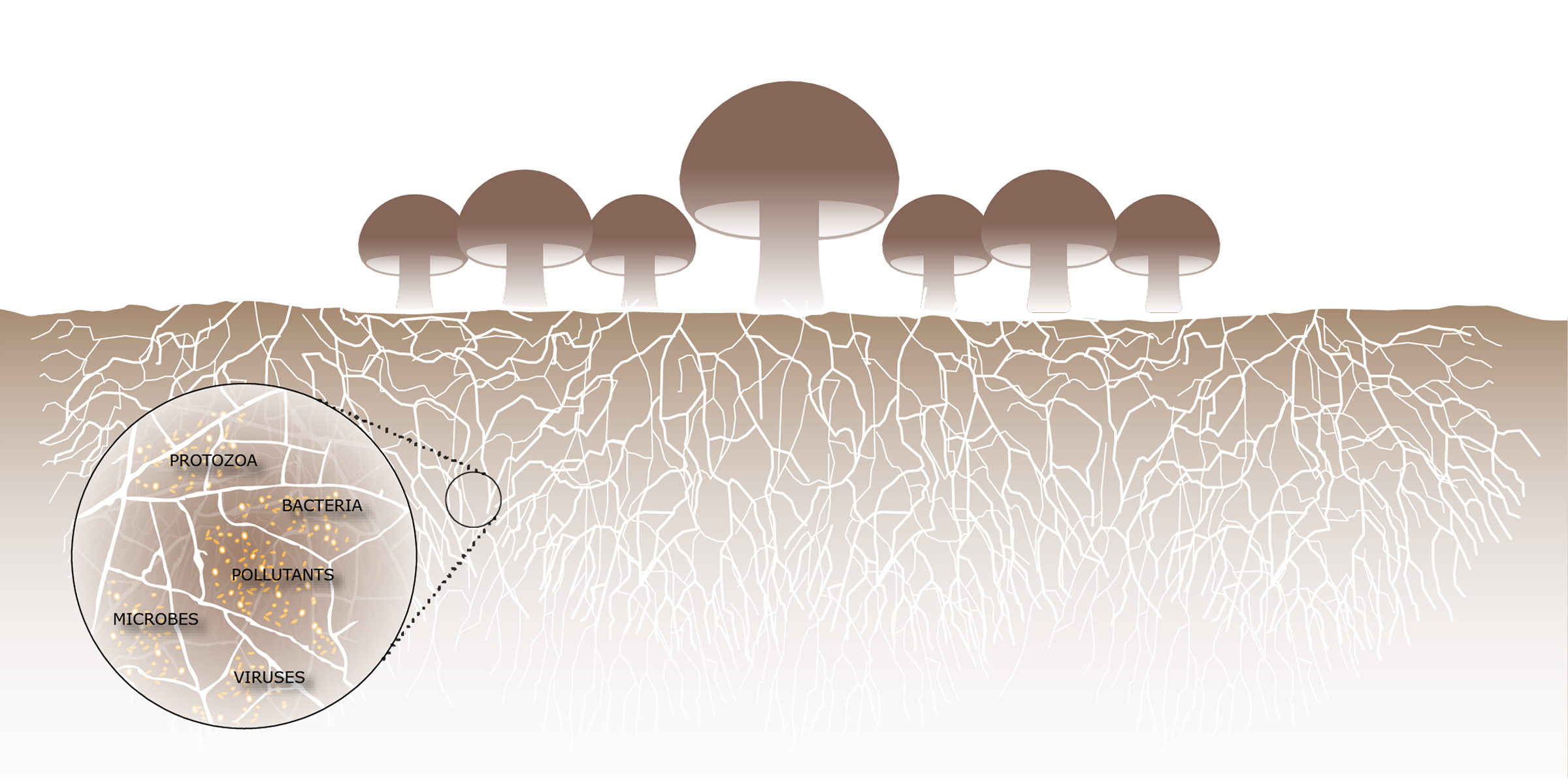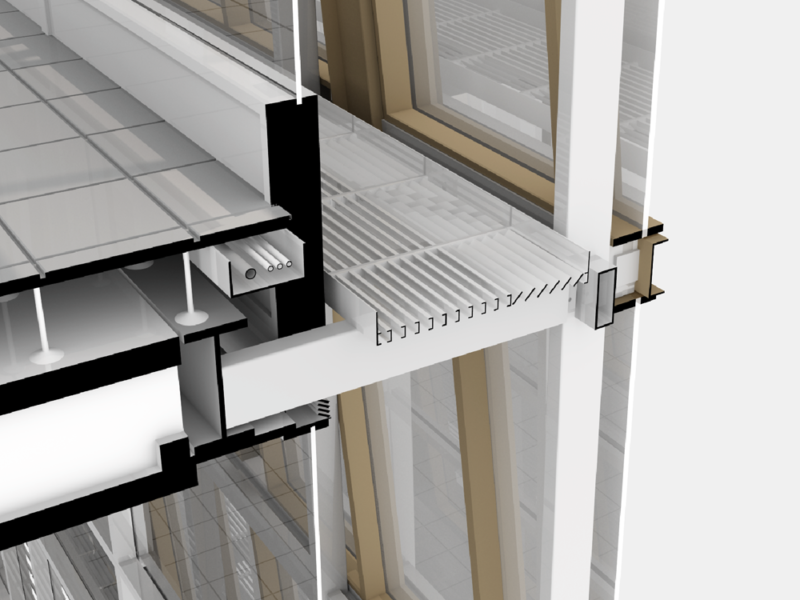Fungi & Mycoremediation
A common barrier to the development of Brownfield in modern cities is the associated cost of remediation of contaminated land. Such costs drive developers to seek cheaper, more available land, found in the urban belt and Greenfield. Our failure to address this issue results in both a decaying inner city of untouchable, uninhabited, post-industrial land, and an ever-expanding urban belt in place of our rural hinterlands. Mycoremediation, a new method of soil remediation, still very much in its infancy, provides a solution to the problem which is both cost effective, and environmentally-friendly.
Mycoremediation is the use of fungi to breakdown and absorb harmful chemicals and heavy metals in soils, which have accumulated in the presence of polluting industries. The implementation of such ‘myco-filtration’ techniques has the ability to restore biodiversity in our urban soils, through the growth and adaptation of fungus, even when other biological species are unable to survive. In turn this technique has the ability to improve the health of the soil to a point where other biological species may return and flourish, thus acting as a vanguard, or pioneer species.
Fungi: An Introduction
The term Fungi is commonly associated with mushrooms, the mushroom being the only visible part of the organism to emerge from the earth. However, the mushroom is merely the reproductive organ of a larger organism, surviving a fleeting period of time to produce spores, and afterwards decomposes and disappears. A fungus, however, is the intricate network of branching, root-like ‘hyphae’, which infuse the soil beneath the surface, allowing the fungus to gather nutrients and simultaneously generating and maintaining soils for the benefit of other ecosystems across the planet.

It was this ‘mycelial network’ that first broke down volcanic rock, billions of years ago, to produce the first soils on Earth, laying the foundation for the plant kingdom. Ever since, fungi has formed a symbiotic relationship with the plant kingdom in decomposing waste matter, generating humus soils, and even forming mutualistic relationships with plants to distribute nutrients for the benefit of both parties…









